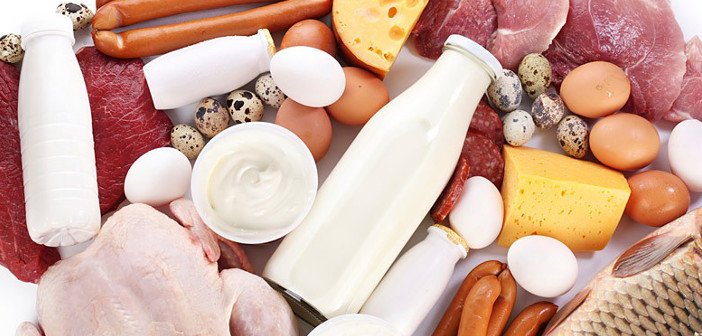Meat Eaters: Farmers’ Friends or Environmental Foes?
This week marked the celebration of ‘World Vegetarian Day.’ October 1st kicked off a month long campaign to raise awareness about vegetarianism, promote vegetarian lifestyles, and endorse the humanitarian benefits of being vegetarian. The occasion proved popular on social media and trended on Twitter throughout the first day of October.

The celebrations came just days after British MP Kerry McCarthy called for meat eaters to be treated the same as smokers, and for there to be “public advertising campaigns to stop people eating (meat) to show the harm done to animal welfare.” McCarthy, who has just been appointed the Shadow Secretary of State for Environment, Food and Rural Affairs by Labour’s new leader Jeremy Corbyn, is a vegan herself – a self-confessed ‘militant’ one at that. She added that despite progress to improve animal welfare, the only way to truly protect animals is to stop eating meat and dairy.
So, how seriously should comments of this nature be taken? Although vegetarian and vegan diets have existed for quite some time, there is no doubt that they are becoming a much more popular lifestyle choice lately. The reasons behind such dietary choices can vary hugely. One could have specific health requirements, or could believe that not eating animal products is much more ethical, environmentally friendly and socially beneficial. Or they could simply dislike the taste of meat and dairy.
A more trivial, but no less merited, reason is that of social media. The content promoting vegetarianism and veganism is rife across various platforms, and the fact that it is ‘trendy’ cannot be ignored as a contributing factor. Instagram, in particular, has a ‘vegan’ tag containing over 16 million posts – many of which have absolutely nothing to do with veganism or vegan food.

While what is popular online may seem somewhat frivolous, social media trends most definitely transfer to the real world, real people, and real markets. So, if the internet’s latest lifestyle craze were to be combined with the real-life implementation of Kerry McCarthy’s call to treat meat eaters the same as smokers, how badly would this affect the farming sector?
2015 isn’t even over yet, and it has already been marked as a poor year for the dairy industry. Despite the belief that farmers would reap the rewards once milk quotas and supply controls were removed, this hasn’t been the reality. Such discussions were had at the National Ploughing Championship last week. The Irish Farmers Journal’s Peter Young claims that dairy farmers are looking at a significant loss in their income because of the low price of milk.
Speaking on Today FM’s ‘The Last Word,’ the dairy specialist said
Quotas are gone now and many (farmers) have produced more milk, and that has actually added to the milk checks over the last couple of months (…) Farmers do believe that milk prices will increase, but the question is when will it increase from the lows that we have seen, and are probably going to see, in the next few months.
Similarly, Minister for Agriculture, Food, the Marine and Defence Simon Coveney echoed Young’s anxieties, saying that although “there will be a significant reduction in income this year for dairy farmers (it was) predicted that there would be difficulties in global milk markets.”
Fear is also rife in the beef market, despite the output of the meat being quite high. According to Coveney, many farmers are actually concerned by the high prices of beef at the moment, as they fear that the current strength of the market will not carry on into future years.
The concern is that we need to have an output for all of that beef to ensure that it doesn’t drive prices down next year. That is why I have been really focused on opening up new markets; whether it’s China, the US, Japan or North Africa. We are in multiple markets that no other European countries are in at all.
Multiple markets may sound certain enough, but if public ad campaigns discouraging meat eating were actually implemented, meat sales would most likely drop even further, and this concern could become a reality. Although it is widely acknowledged that there should be less red meat in people’s diets – as studies have shown it can lead to the development of type two diabetes and can increase the risk of heart disease – the benefits of eating meat cannot be undermined either.
Particularly in the early years of a person’s development, meat provides a much needed source of protein and may allow for a more varied diet. As humans, we are natural omnivores and, while we (perhaps) shouldn’t be eating as much meat and dairy as we are, complete deprivation of both may not be the best choice either.
 Although various supplements and vitamins exist for those who do not wish to consume any animal related products, a person who does not eat enough meat may run the risk of developing iron deficiencies. However, this is not to say that something like anaemia – a low red blood cell count resulting from a lack of iron – is more likely to affect vegetarians and vegans. In fact, almost a quarter of the globe’s population already has some form of anaemia, making it the most common blood disorder in the world today.
Although various supplements and vitamins exist for those who do not wish to consume any animal related products, a person who does not eat enough meat may run the risk of developing iron deficiencies. However, this is not to say that something like anaemia – a low red blood cell count resulting from a lack of iron – is more likely to affect vegetarians and vegans. In fact, almost a quarter of the globe’s population already has some form of anaemia, making it the most common blood disorder in the world today.
It is thought that anaemia is most likely to affect the elderly, children, and pregnant women, regardless of whether or not they are regular eaters of meat. It does seem like – irrespective of whether somebody is vegetarian, vegan, or a lover of all things meaty – to ensure that your body remains healthy, a simple balanced diet may be the only foolproof option.
But as for the belief that all meat eaters should be treated the same as smokers… Honestly, I can’t see crowds of people huddling outside restaurants eating burgers any time soon.
Images via salmonvalleybaptist.org
thesun.co.uk
macedoniaonline.eu
@pureclinic
